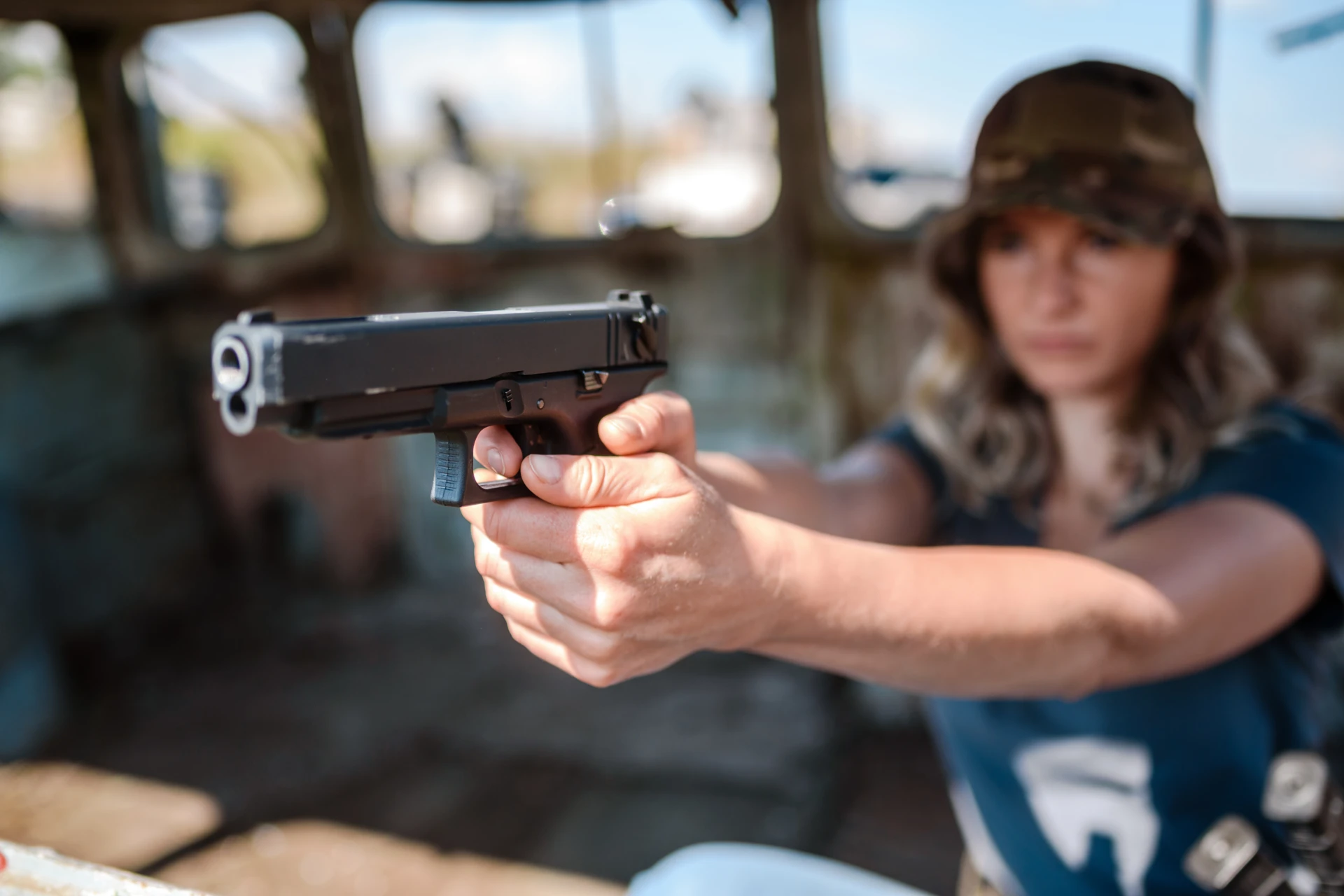Online Gun Safety Courses vs. In-Person Training: What Every Civilian Should Know
Should you take your concealed carry course online or in person? Discover the pros, cons, and the Condition 3 approach to responsible, family-first firearm training.
Introduction: The Modern Firearm Training Dilemma
In today’s fast-paced world, civilian gun owners are increasingly asking the same question: Is an online gun safety course enough, or do I need in-person training?
The rise of online firearm certification programs — particularly for concealed carry courses — has created both opportunity and confusion. On one hand, families appreciate the accessibility and affordability of online education. On the other, critics worry about whether digital-only training provides enough practical discipline to prepare gun owners for real-life situations.
This article explores the pros and cons of online versus in-person firearm safety training, with a focus on how families and civilians can choose the path that keeps them safest — and most responsible.

The Rise of Online Gun Safety Courses
Searches for terms like “concealed carry online” and “online gun safety course” have surged in recent years. Several factors fuel this growth:
-
Accessibility: Online platforms allow families to complete training from home, at their own pace.
-
Pandemic Impact: COVID-19 restrictions accelerated digital learning across every industry, including firearm safety.
-
State Variability: Some states accept online concealed carry certifications, others require hybrid or in-person proof of competency.
-
Growing Civilian Interest: First-time gun ownership is rising among families, many of whom want education before entering a live range environment.
The bottom line: online training isn’t just a trend — it’s a necessity for many families who otherwise might never pursue education at all.
Benefits of Online Gun Safety Programs
-
Convenience for Families
Parents balancing work, childcare, and personal obligations can complete modules without rearranging schedules. -
Cost-Effective
Online programs often cost less than multi-day, in-person courses — making them more accessible for new gun owners. -
Consistent Curriculum
Unlike some in-person classes that vary by instructor, online certification courses deliver standardized, repeatable lessons. -
Beginner-Friendly
New firearm owners often feel pressure in live environments. Online education allows them to build confidence before stepping into a classroom or range. -
Non-Live-Fire Options
Condition 3, for example, emphasizes non-live-fire firearm training with inert weapons and scenario-based drills. This makes online education safer and more accessible, especially for parents introducing concepts to children.
Limitations of Online-Only Courses
While online training offers many benefits, there are also limitations:
-
Lack of Instructor Feedback
A screen can’t correct your grip, stance, or discipline. Mistakes can become habits without professional guidance. -
Legal Recognition Varies by State
Some states do not recognize online firearm certifications for concealed carry. Always check your jurisdiction. -
Risk of Checkbox Learning
Without personal accountability, students may rush through modules without developing the mindset of discipline that true readiness requires.
For these reasons, online courses should be chosen carefully — ideally from organizations like Condition 3 that emphasize civilian responsibility and family-first safety.
The Case for In-Person Firearm Training
Despite the digital boom, in-person courses still provide critical value:
-
Immediate Feedback
Instructors can correct unsafe habits on the spot. -
Peer Accountability
Learning alongside others creates community and reinforces responsibility. -
Confidence Through Practice
For many gun owners, the physical repetition of drawing, racking, and presenting under an instructor’s eye builds lasting confidence. -
Scenario Realism
Role-playing in real space adds dimensions that video can’t replicate.
For families, in-person training also models discipline for children, showing them that firearm ownership is a serious responsibility.
The Hybrid Future: Best of Both Worlds
The most effective training blends online education with hands-on application. This hybrid model is growing rapidly across the United States, allowing families to:
-
Complete foundational education online (history, laws, safety principles).
-
Reinforce lessons with instructor-led drills (handling, situational awareness, de-escalation).
-
Practice non-live-fire skills at home with inert firearms.
-
Earn certification recognized by both digital and traditional standards.
This blended approach ensures convenience without sacrificing discipline.
Why Condition 3 Stands Out
Condition 3 offers a civilian-first, child-first approach to firearm training that bridges the gap between online and in-person instruction.
-
No Live Fire Required
Our programs focus on responsibility, not recoil. Students master safety, mechanics, and situational awareness without ever firing a round. -
Scenario-Based Learning
We use practical drills with inert firearms, so civilians develop confidence without risk. -
Family-Focused Curriculum
Adults learn Condition 3 carry and de-escalation while children learn Stop, Don’t Touch, Leave, Tell. -
Accessible Online and In-Person
We combine digital resources with workshops and community partnerships, ensuring that families can learn no matter where they are.
Condition 3 redefines readiness: it’s not about bravado or tactical glamor. It’s about discipline above ego and safety as freedom.
How to Choose the Right Training Path
When deciding between online and in-person courses, consider:
-
State Requirements – Does your state recognize online concealed carry courses?
-
Family Needs – Do you need flexible, at-home training for kids and parents?
-
Program Philosophy – Does the program focus on civilian responsibility or tactical ego?
-
Evidence-Based Results – Look for programs grounded in data, not hype.
If you’re looking for a program that combines accessibility, family-first values, and discipline, Condition 3 is the clear choice.
Conclusion: Responsibility Over Convenience
The debate between online and in-person firearm training isn’t really about platforms. It’s about responsibility. A true gun safety program isn’t defined by where you take it, but by what it instills: respect, discipline, and preparation.
For families, the best path is clear: choose training that protects your children, builds community, and prepares you to carry with humility. Condition 3 exists to provide that standard.
Related Articles
A better world, Starts with Us.
Get In Touch Today.
If you want more information about Condition 3, our mission, our services, or how you or your organization can get involved, please contact us below.
